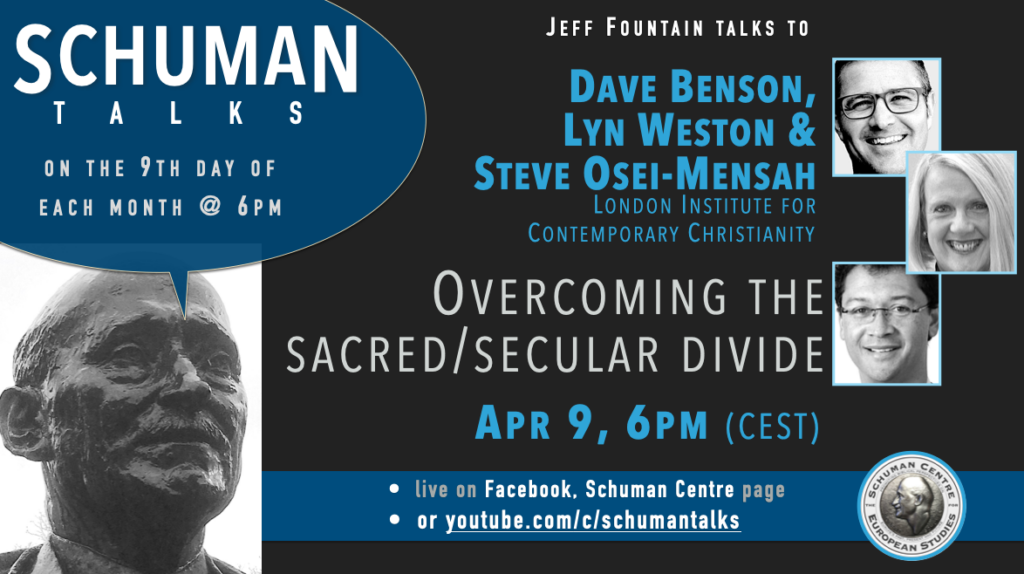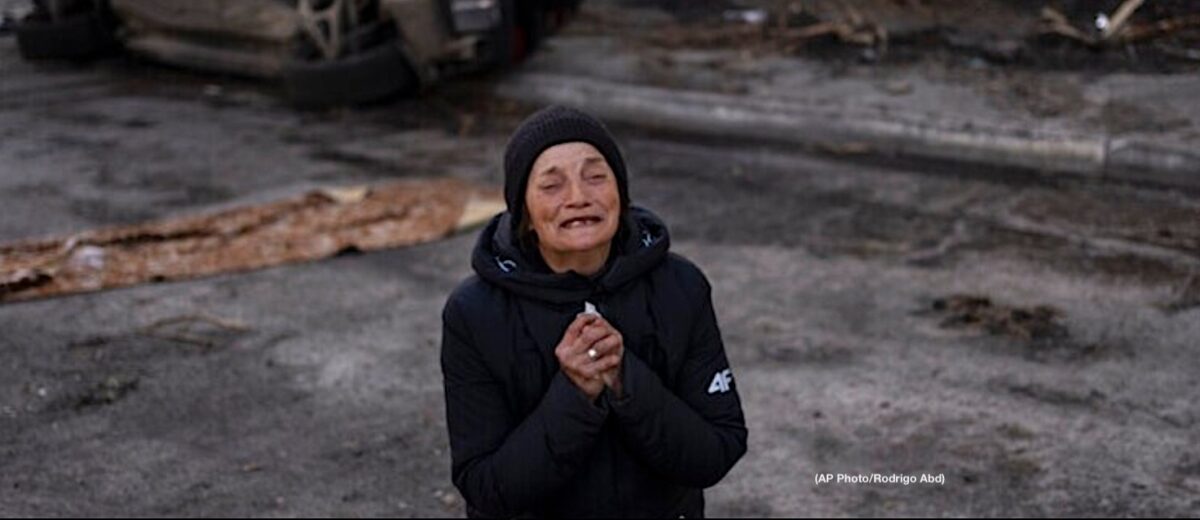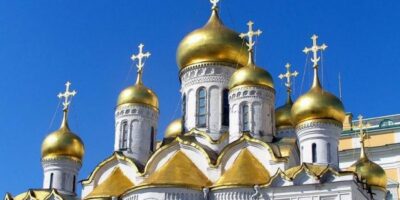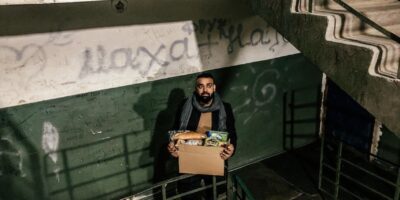Recently a young Muslim seeker named Mustapha sat in our Upper Room talking about how radical Jesus was. ‘“Love your enemy!”’ he exclaimed. ‘How radical is that?!’
These words of Jesus are perhaps too familiar for those of us raised in the Christian faith to sense how truly counter-intuitive they are. Yet when we recall the gruesome and inhumane images seen around the world this week, we realise indeed how radical such a command really is.
Too radical right now probably for many Ukrainians, understandably struggling with emotions of hatred towards the perpetrators – and their superiors – of ‘unforgiveable’ crimes of such enormity.
Apparently its a gospel theme overlooked by the Russian Orthodox Church Moscow Patriarchate which sent out a ‘pastoral letter’ distributed among Russian soldiers saying:
You are a Russian Warrior. Your duty is to defend the Fatherland from Ukrainian nationalists. Your task is to wipe the Ukrainian nation off the face of the earth. Your enemy is an ideology causing sinful damage to human soul.
Last week Patriarch Kirill addressed military personnel at the recently consecrated Cathedral of the Armed Forces opened two years ago just outside Moscow, built more for the glory of Russian military might than for the glory of God. He told them that Russia was a ‘peace-loving’ country that had suffered greatly from war.
We absolutely do not strive for war or to do anything that could harm others. But we have been raised throughout our history to love our fatherland. And we will be ready to protect it, as only Russians can defend their country.
Kirill has previously defended Moscow’s ‘special operations’ in Ukraine by claiming that Russia was fighting fascism in Ukraine as in the Second World War, and also a decadent western liberal culture.
Inappropriate?
A pastor friend based in Kyiv wrote online this week that talk of forgiveness was as inappropriate right now as making jokes at funerals.
Certainly reconciliation and peace between Ukraine and Russia seems further away than ever. The enormity of the revelations of Bucha and Mariupol will remain etched in the memories of Ukrainians for the rest of their lives. As long as Putin and his clique remain in power there is as much chance of true peace and reconciliation as there was while Hitler still breathed. The cynical, deliberate genocide of Ukrainians, cloaked by accusations of Ukrainan genocide towards ethnic Russian citizens, is now being openly declared through such official channels as the Russian Orthodox Church.
And yet, while in solitary confinement under the Gestapo after his country had been invaded and occupied, French MP Robert Schuman smuggled notes to the Resistance saying that ‘we French will have to learn to love and forgive the Germans to rebuild Europe after the war’. Such sentiment was seen as too radical, even treasonable. But Schuman was not naïve. He had become aware of the Nazi attempts to exterminate all Jews. He knew what the SS troops were capable of. Yet his Christian faith convinced him that, sooner or later, only forgiveness and reconciliation could bring lasting peace.
Drain the swamp
Over the two years prior to the pandemic shutdown, I was invited to several events in Kyiv and Lviv with pastors, politicians and civil society leaders. A national forum convened military, agricultural, educational, governmental, religious and healthcare representatives, including former president Victor Yushchenko and the army general responsible for the eastern front. They all received a copy of my book Deeply Rooted about the Schuman story, in Ukrainian. Seated next to a mufti from the Moslem community, I shared for twenty minutes how peace had come to western Europe through forgiveness and reconciliation.
At another event, 150 pentecostal pastors from across the nation had gathered to receive copies of the same book and to hear and discuss the Schuman story. Hanna Hopko, then chairperson of the parliamentary committe on foreign affairs (whom I have recently interviewed), talked with me in her office for 90 minutes about forgiveness and reconciliation. Across the Polish border in Rzeszów, now the main delivery point of western weaponry for the Ukrainian army, I was asked to give ‘a spiritual perspective’ at a Europe-Ukraine conference. To my surprise, the delegates broke into spontaneous applause when I explained how forgiveness ‘drained the swamp’.
Russian historian Andrej Zubov believes we need to start thinking now about the future of a united Europe. Russia is now in the same situation as was Germany during the Second World War. ‘We, by our acts of aggression, have committed many crimes in the sense of international law and the laws of war.’ Reconciliation and unity between Russia and Europe, he recognises, would only be possible after leadership change.
May the time come – sooner than later – when forgiveness, reconciliation and ‘loving enemies’ will again be possible.
P.S. Tonight’s Schuman Talk:


Till next week,




“Reconciliation and unity between Russia and Europe, he recognises, would only be possible after leadership change.” russia’s problem is not solely in their current leadership. It’s in “average russians'” head, heart, worldview. I am not a historian like Andrej Zubov but I can tell you that much. And if you ask me, russia first and foremost needs to think about forgiveness and reconciliation with Ukraine, not Europe.
Also, it is not just russian orthodox church that is infected with the idea of “russkiy mir”(russian world), protestant churches of russia are, for the most part, or at least at the level of their leadership are guilty of worshiping putin and believing and spreading his propagandists ideas as well. It is sickening. And I wonder what is YWAM russia’s position in this war is? I can not ask them myself unfortunately.
Thank you for continuing to write about this WAR, that russia started and continuing in Ukraine.
[…] Jeff Fountain start working on forgiveness and reconciliation now […]